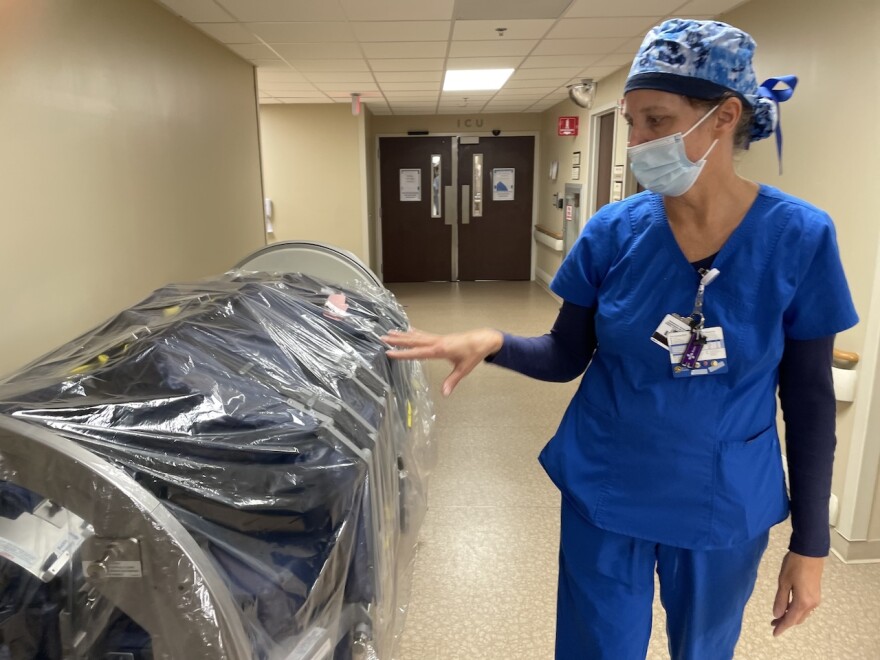It’s a struggle for Joe Gammon to talk right now.
Lying in his ICU bed at Ascension Saint Thomas West, he uses a suction tube to clear his own throat. Even dislodging some phlegm has become a struggle.
“If I would have known six months ago that this could be possible, this would have been a no-brainer,” the 45-year-old father of six says after weeks in critical condition. “But I honestly didn’t think I was at any risk. That is the naive portion on my end.”
Gammon is a truck driver from Lascassas who says he listens to a lot of conservative talk radio. And the daily diatribes downplaying the pandemic and promoting personal freedom were enough dissuade him from vaccination.
Tennessee hospitals are setting new records each day, caring for more COVID patients than ever, and the most critical are almost all unvaccinated, meaning ICUs are filled with regretful patients hoping for a second chance.
Gammon says he’s not an “anti-vaxxer.” And he says he’s a committed believer in the COVID vaccine now. He’s also thankful he didn’t get anyone else so sick they’re in an ICU like he is.
“Before you say no, seek a second opinion,” he says to people who think the way he did before being hospitalized. “Just to say ‘no’ is irresponsible. Because it might not necessarily affect you. What if it affected your spouse? Or your child? You wouldn’t want that. And you sure wouldn’t want that on your heart.”
Gammon is fighting for his life. His lungs are too damaged from COVID for a ventilator. So now, thick tubes run out a hole in his neck, pumping his blood through an ECMO machine to be oxygenated. A mask over his nose forces air into his lungs as they’re given time to heal.
This Saint Thomas West ICU is treating COVID patients only, and that data point should be pretty convincing to vaccine holdouts, says critical care nurse Angie Gicewicz.

“We don’t have people in the hospital suffering horrible reactions to the vaccine,” she notes.
If all the patients on this hall could talk, Gicewicz says they’d tell people to learn from their mistakes. She tells the story of an elderly woman who was admitted in recent weeks spent her first days in isolation to control infection.
Gicewicz says she’d wave at the nurses from her sealed room, desperate for anyone to talk to.
“The first day I took care of her, she said, ‘I guess I should have taken that vaccine.’ I said, ‘Well, yeah honey, probably, but we’re here where we are now. And let’s do what we can for you.’ ”
That woman, like so many who didn’t take the vaccine, never recovered, Gicewicz says. She died at this hospital, which averaged more than one COVID death every day during the month of August.





